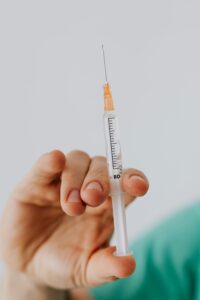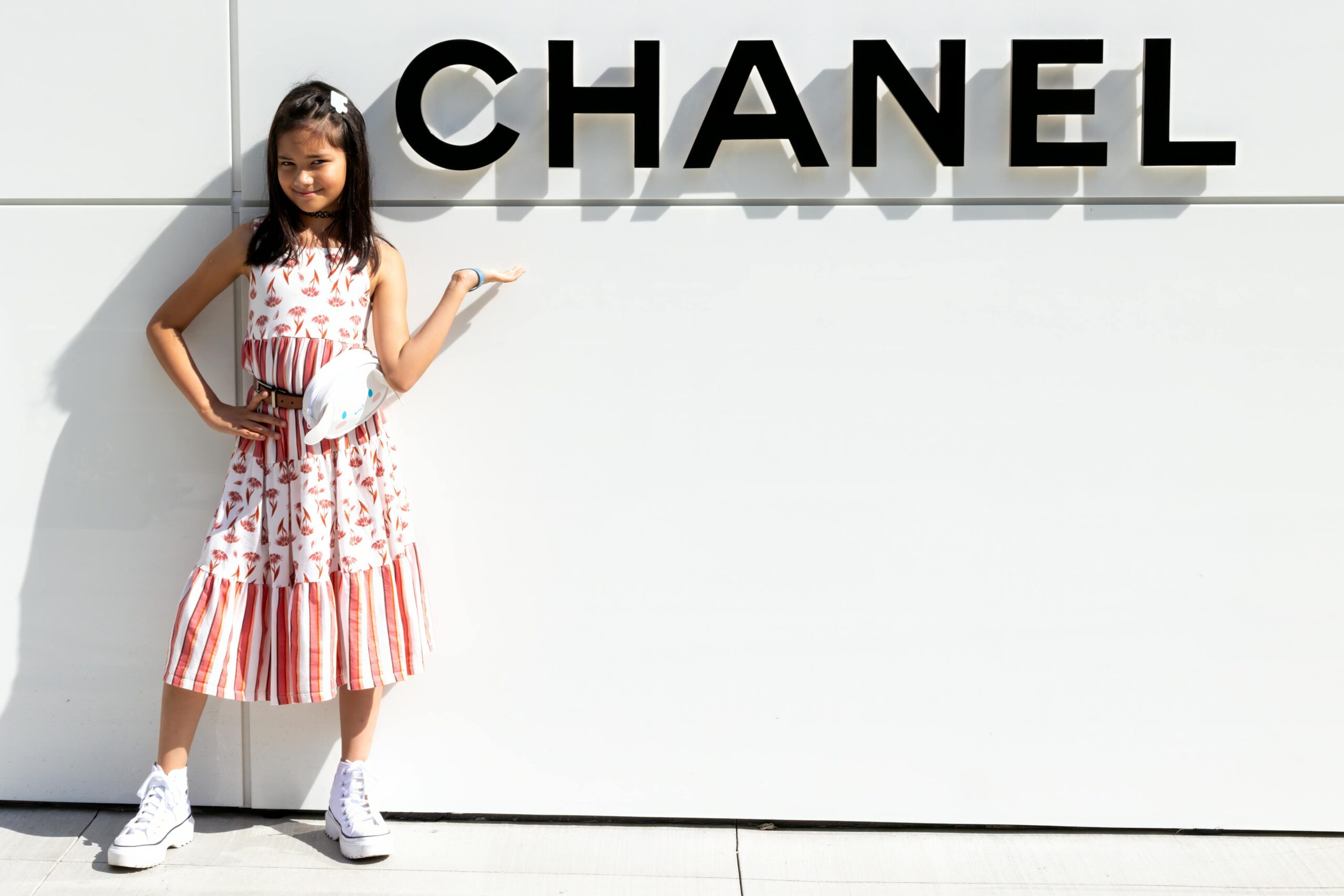Introduction
 While we were previously in an era of body positivity and acceptance, it seems like the tide has turned. The return of the low waist, coupled with other emerging fashion trends, reveals that the age of the heroin chic body ideal has yet again returned, serendipitously coinciding with the meteoric rise in usage of weight loss medications. But this time around, the pursuit of the trending body ideal is not only boosting sales for luxury fashion retailers. Pharmaceutical companies like Novo Nordisk, that produce semaglutide-based weight loss medications like Ozempic and Wegovy are witnessing an unparalleled boost in stock and sales. As the demand for any and all methods to achieve thinness is steadily increasing, it has motivated companies to strictly regulate their copyrights, trademarks and patents in order to block others from unjustly profiting off of their innovation. Novo Nordisk is no different, with the pharmaceutical titan filing various patent and trademark infringement claims against counterfeit and generic versions of its products.
While we were previously in an era of body positivity and acceptance, it seems like the tide has turned. The return of the low waist, coupled with other emerging fashion trends, reveals that the age of the heroin chic body ideal has yet again returned, serendipitously coinciding with the meteoric rise in usage of weight loss medications. But this time around, the pursuit of the trending body ideal is not only boosting sales for luxury fashion retailers. Pharmaceutical companies like Novo Nordisk, that produce semaglutide-based weight loss medications like Ozempic and Wegovy are witnessing an unparalleled boost in stock and sales. As the demand for any and all methods to achieve thinness is steadily increasing, it has motivated companies to strictly regulate their copyrights, trademarks and patents in order to block others from unjustly profiting off of their innovation. Novo Nordisk is no different, with the pharmaceutical titan filing various patent and trademark infringement claims against counterfeit and generic versions of its products.
The Ozempic Craze
 Ozempic was created and trademarked by Novo Nordisk to target Type II Diabetes in patients. The Food and Drug Administration (FDA) approved this drug in 2017. It uses a glucagon-like peptide-1 receptor agonist, also known as semaglutide, as its base ingredient, which aids in decreasing blood sugar levels. But it also had the side effect of acting as an appetite suppressant, resulting in patients undergoing weight loss. Consumers viewed this as a magical solution to solve their weight issues, leading to a spike in demand. This led Novo Nordisk to create Wegovy, another drug with the same base ingredient to specifically target weight loss. The FDA approved Wegovy in 2021 and subsequently, it was trademarked. Both the diet drugs received attention on social media platforms, with influencers touting the products to be the cause of their “glow ups” and “transformations”. Since the demand for the medication was exponentially growing, it incentivized other companies to create and market generic and counterfeit versions of the original drugs to capitalize on Novo Nordisk’s claim to fame.
Ozempic was created and trademarked by Novo Nordisk to target Type II Diabetes in patients. The Food and Drug Administration (FDA) approved this drug in 2017. It uses a glucagon-like peptide-1 receptor agonist, also known as semaglutide, as its base ingredient, which aids in decreasing blood sugar levels. But it also had the side effect of acting as an appetite suppressant, resulting in patients undergoing weight loss. Consumers viewed this as a magical solution to solve their weight issues, leading to a spike in demand. This led Novo Nordisk to create Wegovy, another drug with the same base ingredient to specifically target weight loss. The FDA approved Wegovy in 2021 and subsequently, it was trademarked. Both the diet drugs received attention on social media platforms, with influencers touting the products to be the cause of their “glow ups” and “transformations”. Since the demand for the medication was exponentially growing, it incentivized other companies to create and market generic and counterfeit versions of the original drugs to capitalize on Novo Nordisk’s claim to fame.
Litigation Against Copycats and Counterfeits
 There has been an influx of compounded semaglutide medications which are being peddled by pharma companies, med spas, wellness centres in order to cash in on Ozempic and Wegovy’s success. These often tout to provide customers with similar benefits of these drugs, but have not been specifically FDA approved. Such products not only have the effect of reducing the original company’s profits, but can also mislead consumers into investing their hard-earned money into unapproved medications, which could impair their health. Novo Nordisk has been fervently against the misuse of their trademarked products and have filed a large amount of trademark infringements and cease-and-desists against companies. One instance is of the company filing a claim of trademark infringement against Bella Rose LLC in the United States District Court for the District of Maryland. The defendant med spa has been alleged to have used Ozempic and Wegovy’s marks in their marketing of compounded weight loss drugs. Novo Nordisk claimed that this amounted to Bella Rose misleading patients into thinking that the semaglutide used has been FDA approved or is equivalent to Novo Nordisk’s patented and FDA approved medicines. Novo Nordisk contended that the defendant’s action not only amounted to causing confusion amongst consumers as to the authenticity of the drug, but also put customers at potential risk as the compounded semaglutide had not undergone the testing process conducted by the FDA. The company asked for monetary compensation as well as corrective advertisement by Bella Rose LLC to dispel any misconceptions and reiterate that their product was separate from Ozempic and Wegovy.
There has been an influx of compounded semaglutide medications which are being peddled by pharma companies, med spas, wellness centres in order to cash in on Ozempic and Wegovy’s success. These often tout to provide customers with similar benefits of these drugs, but have not been specifically FDA approved. Such products not only have the effect of reducing the original company’s profits, but can also mislead consumers into investing their hard-earned money into unapproved medications, which could impair their health. Novo Nordisk has been fervently against the misuse of their trademarked products and have filed a large amount of trademark infringements and cease-and-desists against companies. One instance is of the company filing a claim of trademark infringement against Bella Rose LLC in the United States District Court for the District of Maryland. The defendant med spa has been alleged to have used Ozempic and Wegovy’s marks in their marketing of compounded weight loss drugs. Novo Nordisk claimed that this amounted to Bella Rose misleading patients into thinking that the semaglutide used has been FDA approved or is equivalent to Novo Nordisk’s patented and FDA approved medicines. Novo Nordisk contended that the defendant’s action not only amounted to causing confusion amongst consumers as to the authenticity of the drug, but also put customers at potential risk as the compounded semaglutide had not undergone the testing process conducted by the FDA. The company asked for monetary compensation as well as corrective advertisement by Bella Rose LLC to dispel any misconceptions and reiterate that their product was separate from Ozempic and Wegovy.
 The pharmaceutical giant filed against LifeRxMD for trademark infringement and false advertisement. LifeRxMD sold compounded drugs that had similar semaglutide to that of Novo Nordisk’s products. While LifeRxMD’s website did have a disclaimer that their products were not associated with Novo Nordisk’s in any capacity, the latter claim pointed out instances where the company advertised their own products by saying that it had the base ingredient found in Wegovy, which could be seen as LifeRxMD misrepresenting their compounded drugs as the generic version of Novo Nordisk’s trademarked products.
The pharmaceutical giant filed against LifeRxMD for trademark infringement and false advertisement. LifeRxMD sold compounded drugs that had similar semaglutide to that of Novo Nordisk’s products. While LifeRxMD’s website did have a disclaimer that their products were not associated with Novo Nordisk’s in any capacity, the latter claim pointed out instances where the company advertised their own products by saying that it had the base ingredient found in Wegovy, which could be seen as LifeRxMD misrepresenting their compounded drugs as the generic version of Novo Nordisk’s trademarked products.
 Novo Nordisk also filed against Dunklau Pharmacy Holdings LLC for allegedly engaging in misleading business practices by falsely marketing and selling misbranded medicines that claim to contain semaglutide without FDA approval. They contended that Dunklau Holdings was putting the health of patients at risk by selling adulterated products and that the selling of adulterated and misbranded drugs violated the Tennessee Food, Drug and Cosmetic Act. Novo Nordisk did not ask for monetary damages but instead prayed that the company be restrained from continuing such misrepresentation in order to protect the interest of both patients and Novo Nordisk.
Novo Nordisk also filed against Dunklau Pharmacy Holdings LLC for allegedly engaging in misleading business practices by falsely marketing and selling misbranded medicines that claim to contain semaglutide without FDA approval. They contended that Dunklau Holdings was putting the health of patients at risk by selling adulterated products and that the selling of adulterated and misbranded drugs violated the Tennessee Food, Drug and Cosmetic Act. Novo Nordisk did not ask for monetary damages but instead prayed that the company be restrained from continuing such misrepresentation in order to protect the interest of both patients and Novo Nordisk.
Conclusion
It is clear that Novo Nordisk’s stance on the protection of their trademarked products is that of the offensive strategy, with them filing against any company or organisation that markets or sells drugs that claim to have semaglutide as its main ingredient. This shows that the company is keen on dispelling any confusion amongst consumers, so as to not have them mistakenly assume that the company has any association with generic or counterfeit versions of their patented medications. By utilising existing legal frameworks, Novo Nordisk has been keeping a check on the marketing and sale of alternative products, guaranteeing market demand and profits. Often when a product gains the market’s attention, counterfeit versions are produced with the aim of benefitting from its initial popularity. But Novo Nordisk’s history of litigation battles shows how companies can safeguard their intellectual property through relying on legal channels to ensure that their trademarks and patents are protected.





